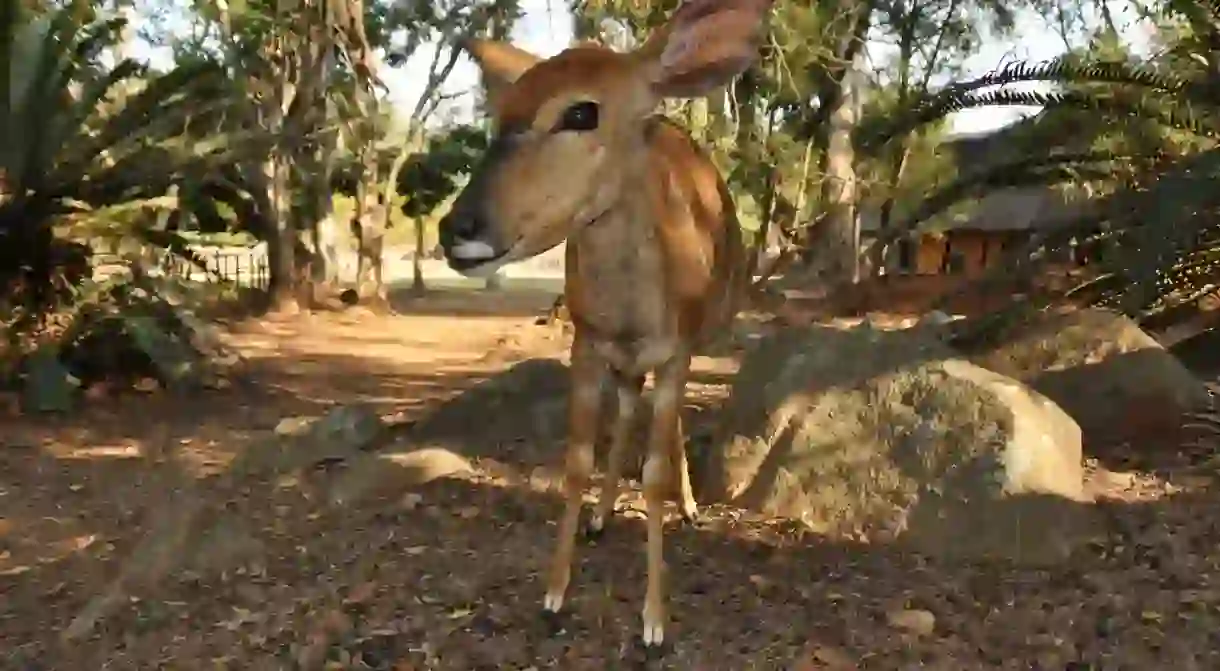How to Spend 48 Hours in eSwatini

Despite being smaller than the state of New Jersey, eSwatini boasts spectacular landscapes, a fascinating culture and the opportunity to see ‘the Big Five’.
Formerly known as Swaziland, eSwatini’s size makes it easy to hop across the border from neighbouring South Africa and tag a weekend visit onto your trip. Read on for Culture Trip’s 48-hour guide to the top attractions in the country.
Day one
Morning: Cross the border and pick up some souvenirs
If you’re tagging a trip to eSwatini onto a wider tour of South Africa, you’ll likely arrive over the land border from Kruger National Park. From there it’s approximately a two-hour drive to eSwatini’s capital city, Mbabane. On the way, stop off at the Ngwenya Glass Factory to see local craftsmen create vases, jugs, ornaments and other glassware from 100 percent recycled glass.
Pro tip: While many nationalities don’t need a visa on arrival into eSwatini, make sure you’ve checked your requirements before arriving at the border.

Afternoon: Meet the Mbabane locals
Spend your afternoon exploring eSwatini’s capital city, and do a spot of shopping at the Mbabane market, the Mbabane Mall or the Swazi Plaza. Then find a café or bar to relax, settle in and get to know some of the friendly locals. The Albert Millin (closed on Sundays) is a great place to soak up the atmosphere and enjoy a Sibebe Beer, eSwatini’s national lager that is named after the famous ‘Sibebe’ Execution Rock.
Pro tip: Swati people are incredibly hospitable, but they’ll be really impressed (and perhaps even more friendly than usual) if you try to learn a few words of the local language.
Evening: Arrive at Mlilwane Wildlife Sanctuary
It’s just a 30-minute drive from Mbabane to Mlilwane, eSwatini’s first protected conservation area established in 1961. Aim to arrive late afternoon so you have time to enjoy a two-hour sunset game drive (with drinks). Located in eSwatini’s ‘Valley of Heaven’, Mlilwane means ‘little fire’ in the siSwati language. The area got its name because of the many fires caused by lightning strikes on Mlilwane Hill. However, it’s also significant as the park is seen as the ‘little fire’ that helped spark wider conservation efforts across eSwatini.
Pro tip: Gates to the wildlife park are open for check-in from sunrise to sunset. Otherwise, you’ll need to use the Night Route for 24-hour access.

Night: Stargazing in Mlilwane
There is a range of accommodation options at Mlilwane, meaning you can stay overnight in the wildlife park and be ready for an early game drive first thing in the morning. There are 30 camping sites (with and without power and some with a private braai, or barbecue), Sondzela Backpackers for travellers on a shoestring budget, double and two-family Rest Camp Huts, 43 Beehive Village Huts across three villages, self-catering Lontweni Rondavels, self-catering family cottages (Shonalanga and Down Gran’s) and the six-room Reilly’s Rock Hilltop Lodge.
After dinner, make the most of your stay in the wilderness – far from city lights – by doing a spot of stargazing. The night sky here will take your breath away!
Pro tip: You’re most likely to see wildlife at dawn or dusk, so an overnight stay in a game reserve will give you the best chance of some special encounters.

Day two
Morning: Wake up to the Mlilwane wildlife
Even if you don’t wake early for a sunrise game drive, you might spot some of Mlilwane’s wildlife while grabbing breakfast at Hippo Haunt Restaurant, which sometimes has hippos and crocodiles visiting its pond. There is a wide range of other activities to fill your morning: go walking, hiking, mountain biking or horse riding. A particularly special horse trail is the three- or four-hour guided mountain trek up Execution Rock, which is suitable for both beginners and experienced riders.
Pro tip: Get up early so you can complete any treks before the scorching midday heat.

Afternoon: Pick up some more Swati souvenirs
On leaving Mlilwane, a small diversion (driving just half an hour south of the wildlife park) will take you to the renowned Swazi Candles complex. Here, talented Swati craftsmen create masterpieces in the shape of different safari animals in just a few minutes. Also on the site is a small handicrafts market, as well as a range of other shops showcasing the wares of local artists.
Pro tip: The candles are specially created to be strong and durable, so don’t worry about taking them home in your luggage.

Evening: Arrive in Manzini
Manzini – eSwatini’s second-largest city – is half an hour’s drive from Swazi Candles, so it’s easy to get to the city for the evening once you’ve picked up all your souvenirs. Choose a restaurant to suit your mood – there are several fast-food joints in the city, as well as a couple of higher-end restaurants.
Pro tip: Manzini is small enough to explore on foot – you can walk from one side to the other in approximately 15 minutes.
Night: Enjoy the evening in Manzini
There tends to be fewer tourists in Manzini than in Mbabane or Ezulwini, but there are still various accommodation options, although many are more suited to business travellers. After enjoying your evening in Manzini, prepare for the two-hour drive back into South Africa the next morning.
Pro tip: While it’s only a short drive to the South African border points, most don’t open until 7am or 8am, so check your timings to make sure you don’t arrive too early.













